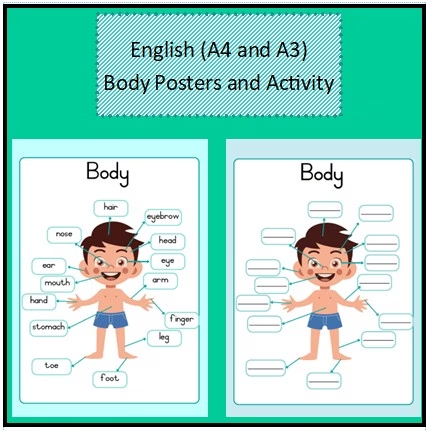Description
Posters that name body parts are a powerful tool in any classroom — especially in early childhood, multilingual, or inclusive learning environments. Here’s why they matter:
🧠 Cognitive and Language Development
- Visual learning: Children absorb information better when they see it. Posters provide clear, consistent visuals that reinforce vocabulary.
- Language acquisition: Naming body parts helps learners build foundational vocabulary in their home language and additional languages — crucial for bilingual classrooms like yours.
- Concept reinforcement: Seeing body parts labeled daily helps cement understanding, especially when paired with songs, games, or movement activities.
🧒🏽 Health and Life Skills Education
- Body awareness: Learners begin to understand their own bodies, which supports self-care, hygiene, and safety lessons.
- Consent and protection: Posters can be part of age-appropriate discussions about private vs. public body parts, helping children articulate boundaries and seek help when needed.
- Inclusive health education: They support lessons on growth, physical differences, and personal care routines.
🌍 Cultural and Linguistic Inclusion
- Multilingual support: Posters in languages like isiZulu, Afrikaans, and English validate learners’ identities and promote language equity.
- Representation: Diverse illustrations (skin tones, hair types, abilities) help all children feel seen and respected.
🧩 Practical Classroom Benefits
- Reference tool: Teachers can point to the poster during lessons, transitions, or songs — making it interactive and useful across subjects.
- Supports speech therapy and ELL learners: Visuals paired with words help children with speech delays or those learning a second language.
You get A4 and A3 posters plus an activity.

